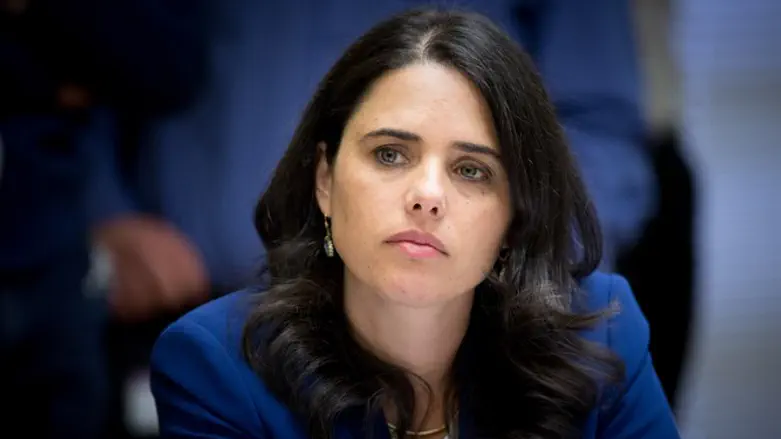
The committee for the appointing of judges on Tuesday evening decided to appoint nine new judges to the Supreme Rabbinical Court, including three judges from the religious Zionist movement.
The appointments were announced following political differences between Justice Minister Ayelet Shaked (Jewish Home) and the haredi parties, which had threatened to prevent any appointments from being announced, were solved.
The sides disagreed on the candidacy of rabbinic judges associated with the Tzohar organization which has blasted the Chief Rabbinate's stand on controversial issues.
Late on Tuesday evening, however, Shaked was able to obtain permits for additional appointments from the Ministry of Finance and thus helped solve the disagreements.
The judges appointed are Rabbi Elmaliach Yitzhak, Rabbi Hisrik Eliyahu Raphael, Rabbi Zamir Yaakov, Rabbi Aharon Katz, Rabbi Luz-Illouz Zion, Rabbi Nahari Maimon, Rabbi Amos Michael, Rabbi Avraham Schindler, and Rabbi Shlomo Shapira.
Two of the newly appointed judges are from religious Zionism - Rabbi Shlomo Shapira and Rabbi Zion Luz. They join Rabbi Eliezer Igra who has already been appointed.
The agreements between the haredi parties, the Likud and the Jewish Home were achieved after intense negotiations led by Minister Shaked, together with Deputy Defense Minister Rabbi Eli Ben-Dahan and MK Revital Swid (Zionist Union), who serves as a member on the committee.
"History in the Supreme Rabbinical Court," Shaked said Tuesday night. “For the first time - four judges from religious Zionism. The court will give service to citizens. This is an achievement for the State of Israel, for Israeli citizens. The judges appointed today are excellent ones who will move the rabbinical courts forward. I thank all the committee members for their enormous efforts to make the court flourish and prosper.”
The committee for the appointment of judges met following a ruling by the Supreme Court that the temporary assignments of the Supreme Rabbinical Court will end on July 15 unless permanent appointees are named.